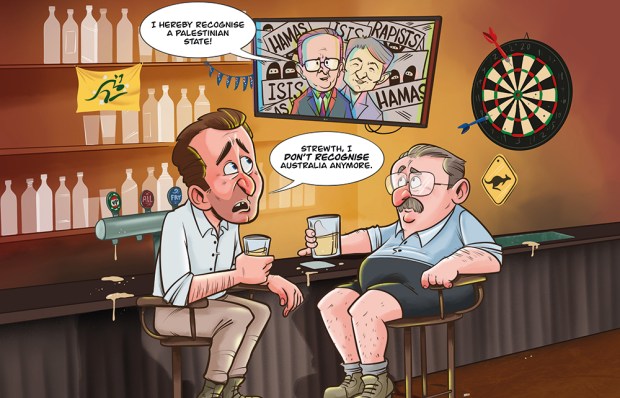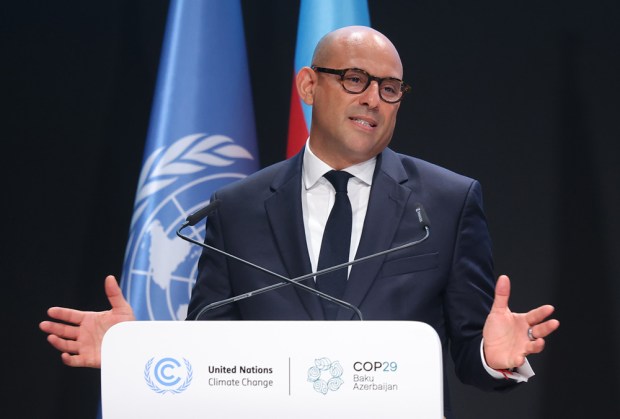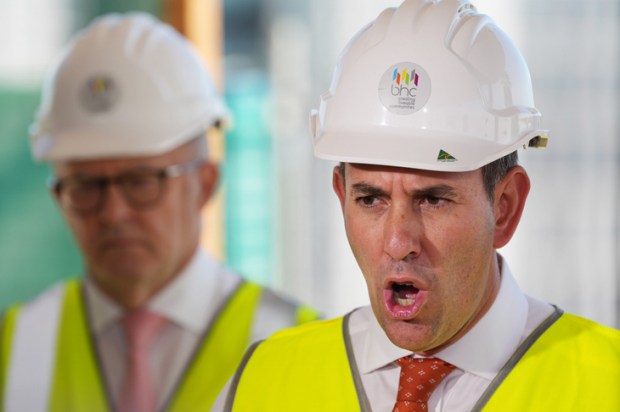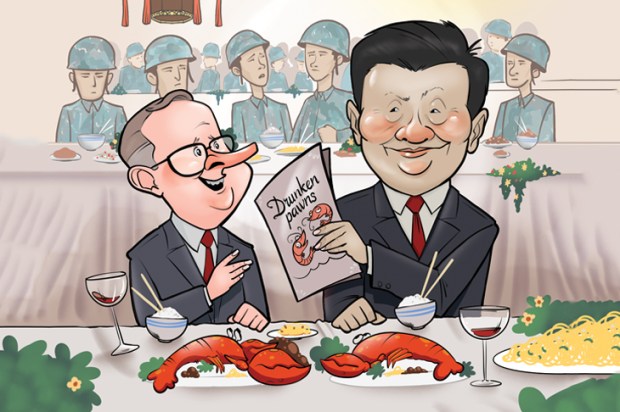Within a few months it will be glaringly apparent to the Coalition that they could and should have fought the recent federal election by vigorously opposing Labor’s energy policies and the insanity of pursuing net zero. A recent opinion poll by the Institute of Public Affairs shows some 56 per cent of Australians are primarily interested in the ‘affordability’ of their electricity, whilst only a pathetic 21 per cent prioritise ‘meeting the net zero emissions by 2050 target’. According to IPA deputy executive director Daniel Wild, ‘Despite the federal election, mainstream Australians simply do not believe net zero is in their interests. At a time of record and rising energy bills, 79 per cent want affordability and reliability as the government’s focus.’
There are several poignant ironies in the above findings, not least of which is that Mr Wild, an articulate and charismatic individual who has often written for this magazine, ran as a Liberal candidate for the outer-suburban Adelaide lower house seat of Spence in the recent election. Although Labor comfortably won the seat, it is clear from the large number of voters who opted for One Nation, the Trumpet of Patriots or Family First as their first choice that, had Mr Wild been permitted to prosecute the case for abandoning net zero, he could very well have been victorious. Moreover, recent actions by the Queensland LNP government of David Crisafulli – clearly now the most important Liberal politician in the country – to not only keep coal mines open but to make possible the banning of the voracious renewables wind turbine industry, suggest the public is far less sympathetic to net zero than the chattering classes would have us believe.
Indeed, as Michael Baume points out in his brilliant column this week, ‘Never before in Australia’s political history has a majority government been so vulnerable to the preferencing decisions made by leaders of third parties…. There is the stark fact that only eight Labor MPs were elected on the first choice of voters on 3 May, with the remaining 86 requiring preferences from other candidates to win. The same affliction also hit the Coalition, with every one of the Liberal party’s 28 MPs failing to win on first preferences – a disastrous collapse since 2013 when the Abbott-led Liberals won 38 seats on first preferences.’
The tragedy (and irony) of the recent election is that the Coalition behaved like Coles to Labor’s Woolies, simply mimicking whatever was on offer and keeping any genuine product differentiation to the barest minimum. Yet only eighteen months earlier the Coalition had pulled off an extraordinary victory by unambiguously following the oldest rule in adversarial political systems – oppose, oppose, oppose… and then oppose some more.
Around the world, net zero is on the way out. (Read both Ian Plimer and Rebecca Weisser in this week’s issue.) Not only has the idea of net zero proved an economic and industrial disaster for countries across Europe, but the reality is now dawning on most sensible and pragmatic politicians that the successful economies of the future will be built on artificial intelligence (AI); that AI relies on vast amounts of energy; and that renewables are incapable of meeting that future demand, no matter how prolific those renewables may be. Which is why, laughably, certain high tech companies are investing in nuclear power plants at the same time as the Australian Liberal party is contemplating mimicking Labor even further and abandoning their support for nuclear energy.
It is hard to imagine a more depressing or asinine party room conversation than that between Liberal pragmatists and Liberal party renewables shills, as the latter desperately try to please their tealish masters and power-brokers by parrotting climate cult alarmism mantras. To make matters worse, as the Bowen climate and energy masterplan of green hydrogen fuelling a renewables ‘superpower’ industry collapses all around us, and we learn (but are not surprised to learn) that household electricity bills are to continue to rise dramatically, the Coalition can barely bring itself to mention the supposedly ‘toxic’ topic of ditching net zero.
Which is why the unequivocal pronouncements over the past few days by two alternative leaders of the Coalition, Andrew Hastie and Senator Matt Canavan, are so important. Using a clever metaphor, Mr Hastie informed a bewildered Patricia Karvelas on the ABC that he would no longer be ‘wearing a net zero straitjacket’ at the same time as Matt Canavan reiterated his antipathy towards net zero and the obscene profits and economic vandalism of the renewables industry, pointing out that some 88 per cent of locals in Rockhampton had opposed the latest massive wind factory at Moonlight Range.
If the gig is not already up, it soon will be. President Donald Trump has already eviscerated UK Prime Minister Keir Starmer for Britain’s net zero insanity. It is with a certain amount of pleasure that we look forward to Anthony Albanese perched awkwardly on the hot seat in the Oval office as the US President makes clear to little old Australia just how lonely and out of touch Australia now is on energy. (And just wait until Mr Trump learns about our anti-free speech legislation).
Great political leaders must do what it says on the pack – lead. Peter Dutton led on opposing the Voice, led on nuclear energy and led on support for Israel. But when it came to the crunch, he was incapable of leading mainstream Australians in a battle with the Labor party on the single most important issue facing this nation. Can Sussan Ley lead? Or will she follow in her predecessor’s footsteps, pander to the greed of the renewables investors who seem to hold such sway over the Liberal party, and carry on with this net zero nonsense. It shouldn’t take too long to find out.
With her demotion of conservative warriors within her shadow cabinet, the signs are not great. But we remain hopeful.
Got something to add? Join the discussion and comment below.
You might disagree with half of it, but you’ll enjoy reading all of it. Try your first month for free, then just $2 a week for the remainder of your first year.













